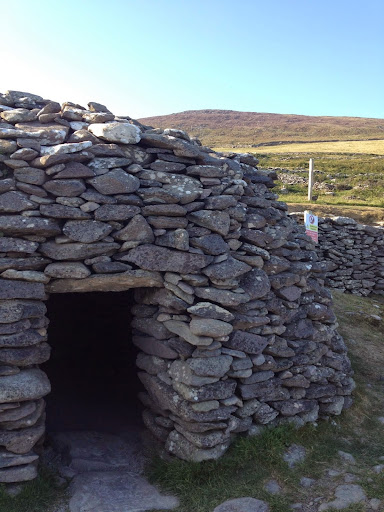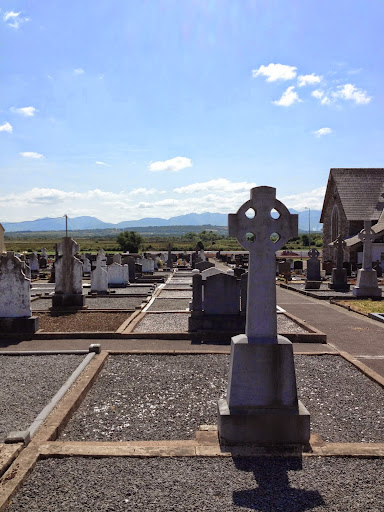Music, Ireland, Love: The Carnival at Bray
It’s difficult to move. It’s even more difficult when you’re a teenager – and you’re moving to another country. Such is the case with protagonist Maggie Lynch in Jessie Ann Foley’s fantastic new book, The Carnival at Bray. In this book, Foley succinctly captures the intercultural experiences of being a teen in a new land, and how music, love, friends, and landscape help shape her and find herself.

I love YA books. There’s something of the promise and hope of growing up, of finding what is true to you, that gets me every time. The Carnival at Bray is a complex, eloquent, and deep look at one teen’s journey to honor a loved one, adapt to living in a new country (Ireland), make a few new friends, and follow her dreams. Maggie is brave, headstrong, insecure, and full of love and life. I imagine most of the readers of this book will find pieces of themselves in Maggie – she’s the ultimate archetype of both a teen on the cusp of adulthood, and an intercultural traveler trying to make sense of her new world.
Throughout the book, music is influential (as it is in real life, especially for teens). The book is set in the early 1990s, and the band Nirvana is a tether for Maggie, in more ways than she can imagine. Music runs like a thread throughout the book, as a character itself.
Author Foley is an educator in the Chicago Public Schools, and I’d say Chicago’s pretty lucky to have her. Her writing is clear and strong, her characters well-developed, and her voice is honest, true, and thoughtful. The book, published by Elephant Rock Books, has already picked up an award: the Helen Sheehan YA Book Prize; I sense many more awards to come – it’s that good. Highly recommended!
Note: the book was named a 2015 Printz Honor Book, and last night selected as one of YALSA’s 2015 Top Ten Best Fiction for Young Adults. In addition, the book was a Morris Finalist. Get reading!!

Actual carnival at Bray, Ireland
We were lucky enough to catch up with Foley and chat about her book and share photos from her recent trip to Ireland. Here’s what she had to say…
Please tell us about your book, The Carnival at Bray...
Here’s the blurb from the back cover:
It’s 1993, and Generation X pulses to the beat of Kurt Cobain and the grunge movement. Sixteen-year-old Maggie Lynch is uprooted from big-city Chicago to a windswept town on the Irish Sea. Surviving on care packages of Spin magazine and Twizzlers from her rocker uncle Kevin, she wonders if she’ll ever find her place in this new world. When first love and sudden death simultaneously strike, a naive but determined Maggie embarks on a forbidden pilgrimage that will take her to a seedy part of Dublin and on to a life-altering night in Rome to fulfill a dying wish. Through it all, Maggie discovers an untapped inner strength to do the most difficult but rewarding thing of all—live.
Drumcliff, County Sligo
What inspired you to write this book?
The Carnival at Bray was originally a short story that I published in the Chicago Reader after visiting a carnival fairground in County Wicklow in 2010. I’m Irish-American, but as Maggie learns in the first chapter, that identity can have very little to do with what it means to be actually Irish, and if I had known then that I was setting myself up for the task of expanding it into an entire novel set in Ireland, I might have made things easier for myself and kept Maggie in Chicago. But then, she would never have met Eoin.

Bray
You are an educator and work with teens - how did working with your students affect your writing?
I’ve been a high school English teacher for ten years, and I think being surrounded by kids all day helps you never forget what it’s like to be young. I certainly wouldn’t want to go back to those years, but I still think it’s such a cool age. When you’re fifteen, everything is new and fresh; so much life happens. You really feel the possibilities of your life ahead of you. The process of growing up has inherent drama; it lends itself to good stories.
Blaskets
Intercultural adjustment is difficult - especially for a teen. What personal experiences did you draw on for your writing?
I’ve spent some time in Italy and Ireland—though not enough to ever assimilate to either culture, which is why it made sense to me to write Maggie as someone who was struggling to belong.
Inis Oirr
Ireland! Oh, we love Ireland. But living there can be much different than being a tourist, as you've captured so beautifully. Why is it important for teens to read about places that are real, and adjustment that is real, too? What sort of research did you have to do?
I didn’t get the chance to visit a foreign country until I was in my twenties. When I was younger, the only way I had to find out about other places and other lives was by reading about them. I had an amazing teacher during my senior year who turned me on to some great women writers as well, which I think is especially important to teenage girls.
As far as research, my husband, Denis, who is from County Kerry, was a huge help. I tortured him with constant, nitpicky questions relating to word choice, slang, and authentic details: What do you call those bales of hale covered in plastic? What is the hurling equivalent of a quarterback? What kind of beverage would a young Irish kid drink if his father took him to the pub? Things like that. If there was a passage that contained lots of dialogue—Eoin’s long monologue about his mother comes to mind—my husband would read it aloud and help me figure out what needed tweaking. I was so nervous for him to read the first draft of the book, because I knew I was going to make ridiculous mistakes. But he was polite enough not to make fun of me.
Rossbeigh, County Kerry
Music, landscape, books, and people are important to the main character, Maggie. She's also quite real, and relatable. What was it like, to write and create such a compelling and interesting character?
Well, thank you! I’m glad you found her to be a compelling character. It’s funny how you grow attached to your characters. There were certain directions I thought about going in the novel, but I was almost protective of her: I didn’t want bad things to happen to her. But if characters don’t struggle, you don’t have much of a novel.
Ballagh Hill, County Kerry
What's up next for you?
I just published a new short story, “The Day of New Things,” in Midwestern Gothic that I’m really proud of. I’m also working on a new novel about an all-girls Catholic school in Chicago that is in danger of closing down. I’ve also got a short story collection, Neighborhood People, in the works. And I’ve got a million half-finished essays littering the desktop of my computer, about teaching, motherhood, baby yoga class, The Grapes of Wrath, road tripping, William Carlos Williams, and organic cherries. Of course it’s a lot harder to write for a sustained period of time now that I have a baby, but if I’m not working on something, no matter how terrible or how scattered, I don’t really feel like myself.

Beehive huts, Ireland
Is there anything else you'd like to share?
The Carnival at Bray is available on amazon, Powell's, Barnes & Noble, indiebound.com, and independent bookstores. Kirkus gave it a starred review and called it “powerfully evocative.” If you’re an educator, an awesome reading and teaching guide can be found on my publisher’s website. You can also learn more about me at jessieannfoley.com.

Cemetery at Keel, County Kerry
Munster final, Killarney
All photos courtesy and copyright Jessie Ann Foley
Note: We received a review copy of The Carnival at Bray from the publisher - thank you!
In The Carnival at Bray, author Jessie Ann Foley succinctly captures the intercultural experiences of being a teen in a new land, and the importance of music, love, friends, and landscape.
Posted by: Jessica Voigts



















